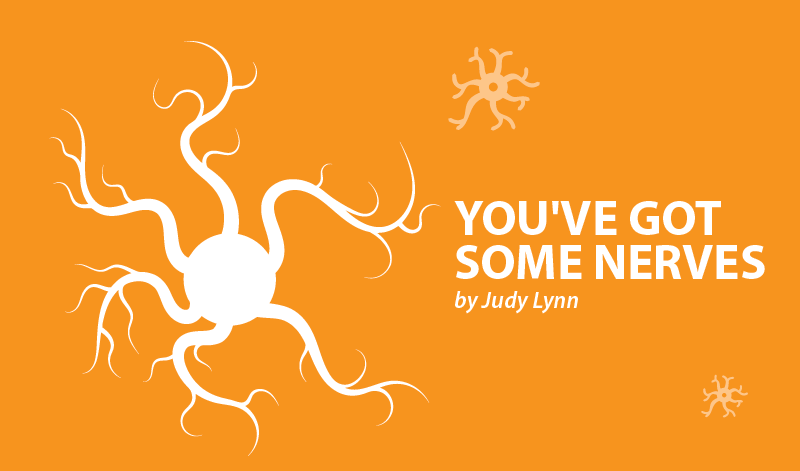Everyday Matters: A Positive Program for People with MS
Written by |


Many years ago, not long after my MS diagnosis, my cousin gave me a “gratitude journal.” At that time, I was all too aware of what I was not grateful for. The thought of giving thanks was daunting. But the journal suggested writing down just three things a day and keeping it simple: A cup of tea, sunshine, the sound of children laughing. I began on Jan. 1, and within a week, I was hooked. I found it easy and helpful to recognize some good in my day and went to sleep feeling more content.
Before I lose some of you who may be rolling your eyes and groaning, let me just say that I am no Pollyanna. In fact, I cringe at the notion of too much optimism. (Now I’m losing you perky folks, aren’t I?) The truth is, I land somewhere in the middle. I know all too well how much MS can suck, and the toll it takes on us as patients, as well as on our loved ones. But desperate times call for desperate measures, right? So, I journaled my way through the following year and felt better because of it.
This idea of practicing gratitude is one of several concepts found in the field of positive psychology. Positive psychology is the study of what is good or working right in our lives, rather than what is not going well. According to the Positive Psychology Center, it “is the scientific study of strengths that enable individuals and communities to thrive … founded on the belief that people want to lead meaningful and fulfilling lives, to cultivate what is best within themselves, and to enhance their experiences of love, work, and play.”
I have continued the practice of a gratitude journal for more than a decade now. Sometimes, when my inner Eeyore is particularly strong, I find myself writing what I like to call “back-handed gratitude.” For example, I may be grateful that “the dog threw up on the old rug instead of the new one,” or for the fact that “I only lost a $20 bill when it could have been a $50.” I try to steer clear of these poorly-veiled complaints as much as possible, but sometimes I can’t help myself.
This personality was channeled one evening as I struggled to come up with something to be grateful for, so I flipped back through the pages. Reading past entries caused a slightly morose thought: When I die, these gratitude journals will be a fantastic gift for my children who are frequent characters in the entries! I still laugh as I recall how pleased this idea made me.
The idea behind practicing gratitude is that you literally rewire your brain to focus on the good in life, rather than focusing on the bad. New York Magazine reports on a study by Indiana University researchers that found actual changes in brain scan activity among participants practicing gratitude. My success with this practice caused curiosity about similar positive psychology approaches, and I have dipped my dropped toes into the ponds of kindness, mindfulness, and happiness.
The National MS Society offers a positive psychology program specific to those of us living with multiple sclerosis called Everyday Matters. As the society points out, we know:
- MS can bring many challenges.
- MS can test even the best within us.
- MS can bring what can feel like a never-ending cycle of loss and grief and learning a new normal.
- MS can be isolating and take us to a negative space where we may feel stuck.
- The principles of positive psychology work — happiness is at the center of success.
Everyday Matters consists of eight modules and can be completed in a group setting or on your own, via online resources. The topics can be covered at your own pace and in an order that works for you. They include:
- Happiness As a Habit
- Adjusting Our Mindset
- The Tetris Effect
- Success Through Resilience
- The Zorro Circle
- The Path of Least Resistance
- Building Your Community
- Keeping the Momentum Going
I plan to check out this course in the coming weeks or months. Even with the best of care and effort, sometimes MS still gets the better of us. That’s the nature of a chronic, progressive disease. It cannot hurt to gather all the tools we can in an effort to find joy, happiness, and resilience on this path. Maybe some of you would like to join me, at least to check out the “Zorro Circle.” Download your workbook and consider joining an Everyday Matters discussion group at MSConnection.
I thank you for hanging in with me to the end of this column, and in the words of my favorite donkey, “Thanks for noticin’ me!”
***
Note: Multiple Sclerosis News Today is strictly a news and information website about the disease. It does not provide medical advice, diagnosis, or treatment. This content is not intended to be a substitute for professional medical advice, diagnosis, or treatment. Always seek the advice of your physician or other qualified health provider with any questions you may have regarding a medical condition. Never disregard professional medical advice or delay in seeking it because of something you have read on this website. The opinions expressed in this column are not those of Multiple Sclerosis News Today, or its parent company, Bionews Services, and are intended to spark discussion about issues pertaining to multiple sclerosis.



Christina
Very interesting. I look forward to reading more about this. Thanks for sharing, Judy!
Steve Johns
You do need to try to maintain a positive attitude. I found this story inspiring.
Late in the night, He finally regained consciousness.
He was in the hospital, in terrible pain.
He found himself in the ICU with tubes in his mouth, needles and IV drips in both arms, a breathing mask, wires monitoring every function, and a nurse hovering over him.
He realized that he was obviously in a life-threatening situation.
The nurse gave him a serious, deep look, straight into his eyes, then spoke to him slowly and clearly, enunciating each word and syllable, "You may not feel anything from the waist down."
Somehow he managed to mumble in reply, "Can I feel your breasts, then?"
AND THAT, MY FRIEND, IS POSITIVE MENTAL ATTITUDE.